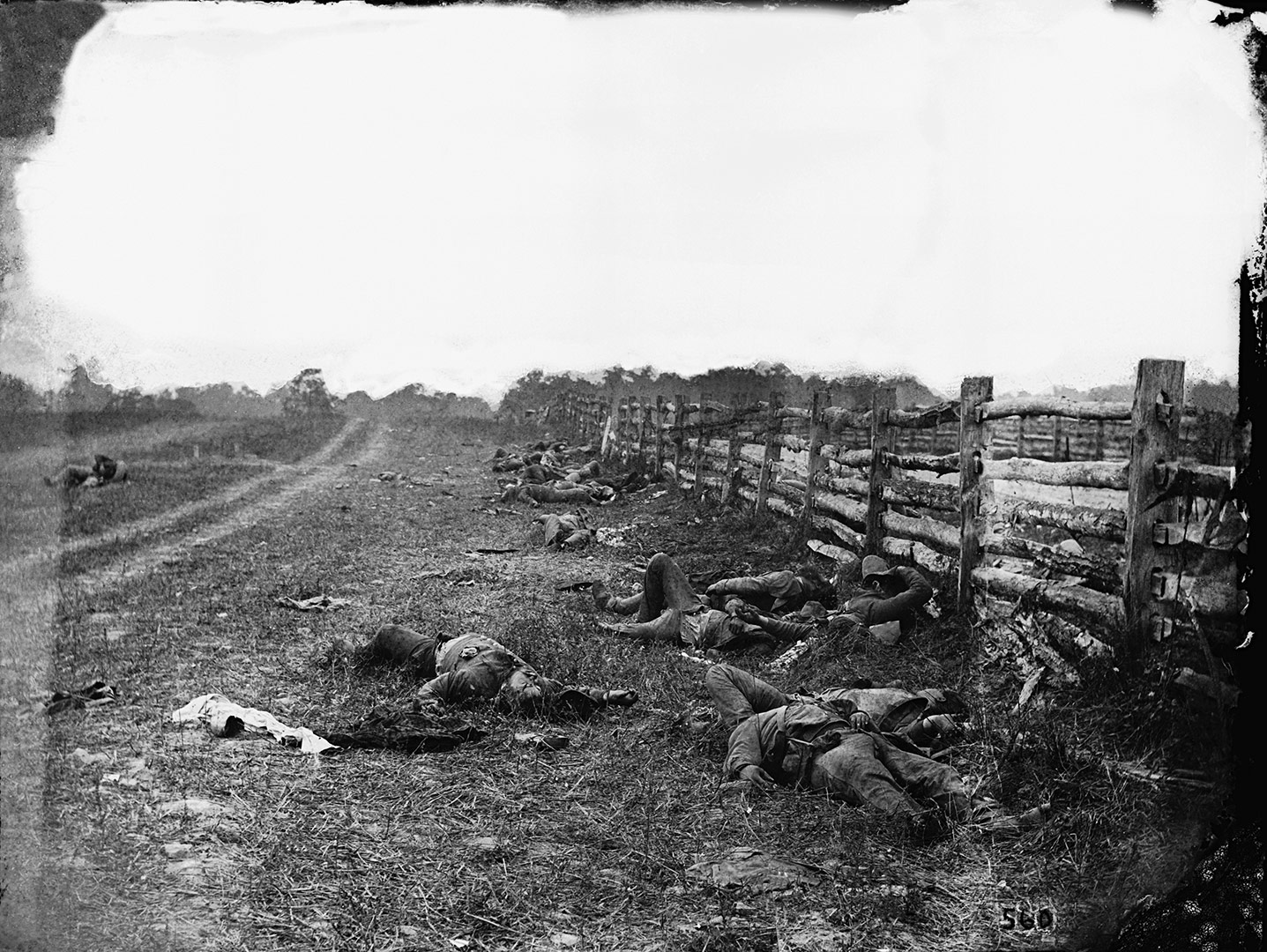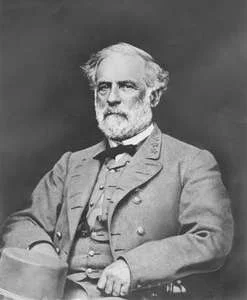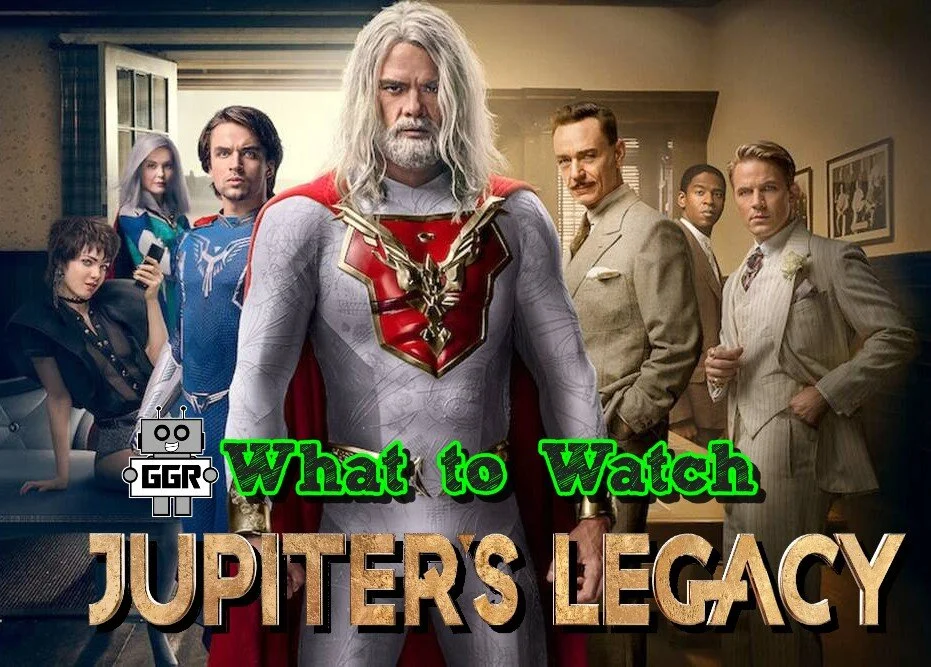What to Watch: Ken Burns' The Civil War
by Mike Lunsford, Editor-In-Chief Great Geek Refuge
Faithful readers, you already know that I’m a nerd. It’s painfully obvious in the things that I write/podcast about. What many of you may not know, is that I am also a HUGE history nerd. It helped that I grew up in Virginia, surrounded by centuries of history in my backyard. My father is also a history nerd, so I never really had a chance.
After finishing up a few shows and movies on my watch list, I wanted something different. Ken Burns is the gold standard when it comes to his work, but I had never finished an entire series of his. Netflix had recently added The Civil War to it’s catalog and I felt it was my duty as a self-proclaimed history nerd (and Virginian who lives in a town known for its famous Civil War battle) to watch Mr. Burns’ critically acclaimed work.
If you were like me and had never seen Ken Burns: The Civil War, you are doing yourself a huge disservice. When it originally aired on PBS in 1990, it was the most watched program on the public broadcast channel, with 14 million people tuning in to watch each episode. The series sparked a renewed interest in the Civil War. The series managed to retell stories of the war and depict the engagements but more importantly, it showcased how historically important this war was. Prior to this series, the Civil War had been somewhat neglected in popular historical consciousness. After the series, there were more movies, books, and other media that focused on the Civil War. This went unnoticed by an 8 year old boy who hadn’t been taught about the Civil War yet. Writer Shelby Foote said this about the importance of the war:
…But the Civil War defined us as what we are and it opened us to being what we became, good and bad things. And it is very necessary, if you are going to understand the American character in the twentieth century, to learn about this enormous catastrophe of the mid-nineteenth century. It was the crossroads of our being, and it was a hell of a crossroads.
The documentary did exactly what I had hoped for when I chose to watch it. Burns fills in the gaps that middle and high school history classes left out. It gives depth to the military and political figures of this war and explains the hows and whys of the battles, both between the soldiers and their respective governments. It shows how this bloody conflict was the single most important event in the history of the United States and how it shaped the country’s identity. It also shows more than just the political debates and bigger picture moments, it tells us how individual soldiers were affected through letters, personal journals and the historically impactful pictures of photography pioneer Mathew Brady. It was his influential photos that were the inspiration for Burns to do the documentary in the first place. Burns uses the pictures as the centerpiece of the documentary and uses a technique that will later be called “The Burns Effect.” It brought to life to the still images by panning across or zooming in on the picture. Here is a perfect example with the clip of Lincoln’s Gettysburg Address.
The documentary was riveting. I stayed up late multiple nights just to finish an episode or start the next one. It told the war as a story and added much needed context to a crucial part of our history.
One of the most disputed notions of the Civil War is its cause. Many argue that the South seceded from the Union because they didn’t want the Federal government infringing upon their rights to ignore laws they didn’t agree with. The other side of that disagreement sees that states rights were an important factor, but more important was the South’s desire to keep slaves as property as a “state’s right.” Through quotes from the states who seceded, Ken Burns: The Civil War helps the viewer understand that the narrative of “this was a war about state’s rights” is woefully understating the facts of the matter. The Confederate Constitution makes that plainly clear that no “Federal law can infringe upon a state’s right to keep slaves.” Every state that joined the Confederacy, their signing representative is quoted as saying the reason they left the United States was because of slavery, so it is not up for much question. Slavery was something that Abraham Lincoln promised would not spread to any of the new western states in the Union. It was only later, in the midst of the war, that he specifically came out and made the emancipation a key factor. This is something I think many miss when characterizing Abraham Lincoln: his main goal was to keep the country together at any cost.
“If I could save the union without freeing any slaves I would do it; and if I could save it by freeing all the slaves I would do it; and if I could save it by freeing some and leaving others alone I would also do that."
This does not diminish his role as a leader trying to keep a fractured nation together but it gives a great deal of context. It proves that not everything is black and white when it comes to warfare and politics.
What should be noted though is how similar this war is to modern wars we’ve witnessed in the 20th and 21st century. If you asked a US soldier fighting in Vietnam in the late 1960s, he didn't care about the spread of communism, but that didn’t mean the war wasn’t about that. Just like there were hundreds if not thousands of Confederate soldiers who didn’t care about slavery or even own slaves, it didn’t mean the war wasn’t about slavery. They were fighting for their state, which back then your state’s identity was much more important, at least in the eyes of the South. It was politicians who were sending hundreds of thousands of their constituents to die for them and their ideals, just like in today’s wars.
When looking from the stand point of the Confederacy, they were defending their land from the “invading Yankees” but only a few years earlier, these were their countrymen. The narrative that they were defending their homes and their livelihood and somehow that was a noble cause is tarnished by the institution their new government was sworn to uphold and they subsequently were willing to kill and die for. I get defending your home, I also understand the concept of “as my state goes, so do I,” but they also believed that slaves were not human. They believed that they were a race meant for servitude. I’m not calling them evil or anything of the sort, but the institution of slavery was, as described by many, “a stain” on the United States. Here is what General Ulysses S. Grant had to say about it.
“As soon as slavery fired upon the flag, it was felt, we all felt, even those who did not object to slaves, that slavery must be destroyed. We felt that it was a stain to the Union that men should be bought and sold like cattle.”
The South depended on slaves, institutionally, traditionally and economically. Slavery had to end…and unfortunately the only way they were willing to allow it to end was through bloodshed. There are many Southern sympathizers who attribute one of the causes of the war to the North “being unwilling to compromise.” They were no longer willing to accept that human beings should be kept as property. They would not bend on allowing any human to be sold, beaten, raped, and neglected any further and they weren’t even asking for the Southern states or border states to get rid of their slaves! They simply wouldn’t allow the practice to spread to the new Western states that were being added to the Union. So yes, it was about states rights. The South wanted the right to keep slaves indefinitely, they wanted the right to take them to wherever they moved or visited and they were mad that the North was unwilling to compromise on this. The South felt their voice wasn’t being heard in government any longer and they were willing to leave the country and kill their former countrymen to ensure their right to slavery was kept intact.
The second issue is one of historical significance and factual representation. There were many historians who felt the documentary was lacking in many ways. In fact, they even wrote a response to the documentary called Ken Burns’ The Civil War: Historians Respond in 1997. Mr. Burns is a film maker, not a historian and he made an entertaining documentary that brought a great deal of attention back to one of the seminal events in U.S. history. This does not excuse any of the historical inaccuracies, but it certainly helps to understand where he was coming from in making the series.
In recent years, the documentary has come under scrutiny for these same issues. One of biggest points of contention is the aforementioned Shelby Foote, whose soothing southern drawl could allow him to tell you the sky was green and you would be inclined to believe him, and his legitimacy as a historian. Foote never had any formal training as a historian and was the descendant of wealthy, slaveholding planters who fought for the Confederacy. His predilections to lean towards "Lost Cause” sympathizer made his narrative, which was a dominant force in the documentary, questionable at best. From an aesthetic standpoint, it makes sense. Foote sounds credible, he’s got that great southern gentleman thing going on with his voice, but he has none of the formal training in history that is to be expected of someone who speaks like an expert, as he most certainly does in this documentary. But ultimately, this 9 part series was trying to tell a story, and Foote certainly does that well. His bias doesn’t come through often as he is fair in his assessments with the exception of some uncomfortable affection for Nathan Bedford Forrest. In the same vein though, he also praised Lincoln as a genius, something few Southerns sympathetic to the Confederate cause would do.
I get the blowback from his sizable inclusion in the documentary, but I didn’t take what he was saying as gospel. For me, it was just the viewpoint of a guy, who based on his voice and his infatuation with Nathan Bedford Forrest, had somewhat of a bias. He makes a ton of historically accurate points, he criticizes both sides equally and It was counterbalanced by the likes of PROFESSOR Barbara J. Fields who is a tenured history professor at Columbia University. Her focus is on the history of the American South, 19th century social history, and the transition to capitalism in the United States. And to further show the balance was Ed Bearss, military historian and Chief Historian Emeritus for the National Park Service who has a Masters in History from Indiana University. Foote, by comparison didn’t even graduate from UNC Chapel Hill. To his credit, Foote was an excellent writer and journalist in his own right. He wrote a narrative about the Civil War that was well received, and he studied Civil War history extensively…he just simply didn’t have the background and expertise that Bearss and Fields did. The trio made for a good balance of historical background along with the letters and diaries.
Professor Fields on the left, Bearss on the right. I swear there is no bias from me since Bearss is wearing a Washington Nationals hat, but I love that old man.
Takeaways
Let’s talk about why you should watch this documentary. Even though I spent time in the Army, I would not consider myself an expert on 19th century troop movement and tactics. When I would visit these battlefields, I didn’t truly understand what they were doing, why they were doing it or how it would stop the enemy. Ken Burns: The Civil War fixed that for me. I now understood the all important “why” of these bloody conflicts. I also grew to understand the nuances of certain commanders who have been revered around Virginia. Stonewall Jackson for example? Total psychopathic butcher. He cared little for his men, marched them to death, was a religious sycophant but was revered because he won battles.
Robert E. Lee? He managed to win battle after battle against inept Union Generals. Initially he was against secession and not in favor of slavery. He was even recommended to command the Union Army as he was the “best soldier” the U.S. Army had at the time. However, Lee was unwilling to attack his home state and sided with their decision to join the Confederacy. He overcame disadvantages in manpower and availability of resources to make the Union look foolish. His tactics allowed him to rattle off a string of victories that for a moment, could have conceivably ended with him marching on Washington. The documentary states that Lee’s overconfidence in his abilities, thinking himself to be invincible, cost him a major battle at Gettysburg (I came to find out from my history nerd father that Lee also suffered a minor heart attack before Gettysburg and this severely hampered his decision making, which explains a great deal). Many believe this was the turning point of the war. Side note: the documentary made me chuckle when I found out that his men gave him a hilarious nickname because of his grey hair and strict rules: Granny Lee.
On the other side, Ulysses S. Grant was no military genius. He didn’t “outfox” Lee when he was made commander of the Army of the Potomac. Grant simply was much more stubborn and tenacious than his predecessors. Instead of retreating after a defeat, Grant pressed on and in the end… he had way more men than Lee did. He took massive losses at the Wilderness, Cold Harbor and was at a stalemate outside Petersburg, Virginia for months. It was always painted as once Grant took over command, Lee was toast. No, the picture was made much clearer. Lee simply didn’t have the men, the resources or the supplies to carry on. And no, Grant was not a drunk, contrary to popular belief. He drank when he was bored and when he was besieging Vicksburg for months on end, he had lots of free time and plenty of booze to fill it with.
And Grant’s good friend, General William Tecumseh Sherman? Wow, that dude was scary, the type of commander that you fear to face but are glad when he’s on your side. After taking over command of the Western theater of operations, he outmaneuvered the Confederate contingent trying to defend Atlanta and using his superior numbers, was able to defeat the Confederates in Georgia. While his name is still cursed in the South, Sherman’s March to the Sea was one of the only ways to break the will of the Confederacy. While cruel and possibly excessive, it was one of the first examples of modern warfare. The narrative that he was insane was overstated, as he had to deal with bouts of depression. In fact, when asked about his loyalty to General Grant, Sherman had this to say:
“Grant stood by me when I was crazy, and I stood by him when he was drunk, and now we stand by each other.”
In a single quote, Sherman spoke to both of their stereotypes. Sherman actually had a quote that was even more poignant and spoke to wars being waged by politicians but fought by soldiers.
“It is only those who have neither fired a shot nor heard the shrieks and groans of the wounded who cry aloud for blood, more vengeance, more desolation. War is hell.”
Ken Burns: The Civil War is a wonderful documentary. It’s informative, moving, and changed the way an entire country thought of the Civil War. Taking into consideration that it was made 30 years ago, it still holds up in todays world as an introductory course in the bloodiest conflict on American soil. It isn’t perfect by any stretch of the imagination, but it started a renewed interest in one of the most pivotal periods in our country’s history. In spite of its faults, the documentary is incredibly entertaining and fascinating. It is also effective: I am now fascinated to know more about the Civil War. We can learn a great deal from the past, especially about an event that is so important to our identity as Americans. Take the time to watch this celebrated documentary and reignite your interest in our history.



















Mike Lunsford has a “What to Watch” for the new Baymax! series on Disney Plus.